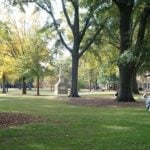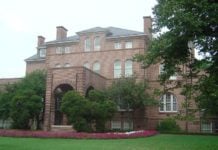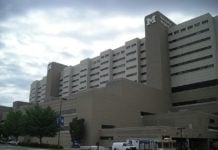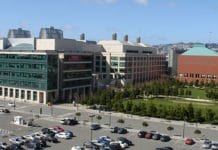There are many medical schools to choose from in the US, and none of them are alike. Most of them offer an M.D. (Doctor of Medicine), and the remaining are D.O. (Doctor of Osteopathic Medicine)-granting institutions. When applying to medical schools, it is a good idea to determine which path to follow and which schools are a good fit in terms of the desired path. Both options are equally rewarding, meaningful, and impactful.
Location is another important yet often underrated factor when choosing a school. Utah is an excellent location for beginning a career in the medical profession.
The best medical schools in Utah offer myriad opportunities for gaining the necessary experience for becoming an exceptional physician. In the 21st century, it is not enough to be a competent physician. Many communities throughout the country are underserved and lack access to high-quality care. The need for compassionate doctors is acute. In Utah and throughout the U.S., there is a projected shortage of physicians within the next few years. Competent and compassionate doctors are needed more than ever.
The schools on this list are located in or near thriving metro areas and within proximity of counties in dire need of physicians. They are selected for this list based on their placement in the US News Medical Schools list.
There are only two medical schools in Utah, however, they are both excellent options. Let’s get started!
2. Rocky Vista University College of Osteopathic Medicine (Ivins, UT)
Anyone who dreams of becoming a healthcare professional and living in Utah, with its stunning mountain ranges and sandstone cliffs, will undoubtedly feel like they have hit the jackpot at the Rocky Vista University College of Osteopathic Medicine, RVUCOM for short. RVUCOM is a for-profit, private medical school where staff and faculty are wholeheartedly devoted to advancing the practice and science of osteopathic medicine.
Before going into detail about RVUCOM’s program and offerings, we would like to note that a Doctorate in osteopathic medicine is different from what many medical schools offer. It is parallel to the M.D. However, the philosophy and practice of a D.O. is centered on healing the “whole person,” so to speak, and not simply ailments and their symptoms. In sum, osteopaths are fully licensed physicians concerned with more than the treatment of pain and disease; they are also concerned with the factors that impact health, such as lifestyle and environment. Many osteopathic physicians work in primary care specialties such as family medicine, internal medicine, and pediatrics.
When choosing a medical school or a program in osteopathic medicine, specifically, the scope and quality of its clinical education curriculum are two of the critical factors to consider.
RVUCOM shines in this aspect.
It has long-standing affiliations with healthcare systems, hospitals, and medical centers throughout the area, which provide ample and continuous opportunities for students to advance their clinical education and training. Students begin their clinical training in the first year. Throughout their education, students are offered increasing opportunities to work with patients in hospital and clinical settings. RVUCOM assigns second-year students to externship sites by lottery. By the 4th year, students have more leeway and can choose their externship sites or opt to pursue research projects and global medicine experiences.
RVUCOM also offers educational tracks in several sub-specialties such as military medicine, global medicine, rural/wilderness medicine, and long-term care medicine. The Military Medicine Program offers military-bound students immersion-based learning and training that is unique to the Medical Corps experience. The school liaisons with community and national military leaders and officers to achieve the program’s objectives. Students and faculty in this program work closely with the Southern Utah Veterans Home to provide osteopathic care to veterans, Gold Star parents, and military spouses.
The exemplary Military Medicine Program has earned RVUCOM a top 10% spot on the list of Military Friendly Schools. The school hosts an annual Military Appreciation Ceremony to honor faculty, staff, and students who have or are currently serving in the military.
As we mentioned at the beginning, location is an underrated factor in the search of good-fit medical schools. The RVUCOM’s campus overlooks the beautiful Red Mountain and is just a 10-minute drive from one of the fastest-growing cities in the country, St. George. Because of RVUCOM’s dedicated faculty, state-of-the-art facilities, and resources, students receive rigorous education and training.
To boot, students can round out their med school experience by taking advantage of the recreational and cultural opportunities offered by the school’s proximity to a thriving metro area. While prospective students can expect to work hard as physicians-in-training, it is not all toil and no fun. Utah is heaven for outdoor adventurers who need a break from saving lives and improving the community’s health. And there is an abundant open sky for fresh air!
Admission into RVUCOM is highly competitive. In 2020, the school received 5,445 applications. Only 135 students enrolled as part of the Class of 2024. The overall GPA for the incoming class was 3.61, and the average MCAT score 506. RVUCOM students are stellar to the very end; the COMLEX pass rates among RVU students are remarkably high, well above 90%.
1. University of Utah School of Medicine (Salt Lake City, UT)
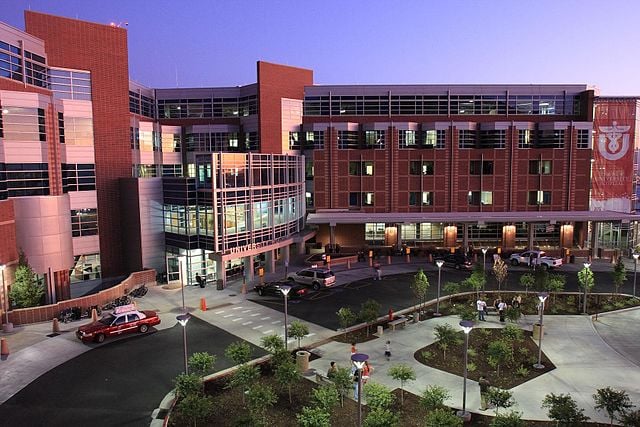
The University of Utah School of Medicine is an excellent choice for a prospective med student. It ranks within the top 100 medical schools for its primary care and research programs, according to the US News & World Report. Students work hard, receiving rigorous training to become top-notch medical professionals. The school trains over 125 healthcare professionals every year and is the only MD-granting school in the state of Utah.
It seems that every medical school professes to be innovative and excellent in its research and curriculum and a holistic approach to teaching and practice. But for the University of Utah, this is not just a mission statement or values.
It adheres to the ideals of compassion, professionalism, communication, and teamwork through such initiatives as the Exceptional Learning Experience (ELE). Through ELE, a dedicated group of core educators, all of whom are faculty members working with administration, staff, and other educators, partner with medical organizations. ELE faculty are driven by the desire to foster an exceptional learning environment for students. An exceptional, collaborative learning environment means exceptional patient care, as students develop the skills needed to become compassionate and competent physicians.
The School of Medicine is home to impressive research facilities and renowned centers and institutes that have expanded in recent years. The Huntsman Cancer Institute is a cancer research facility and hospital designated by the National Cancer Institute. Its state-of-the-art facilities and 206 teams of dedicated researchers ensure that it remains on the cutting-edge in all areas of cancer research, making a significant impact on the community and throughout the region.
Notable faculty of the school include geneticist and distinguished professor of human genetics and biology, Mario Capecchi, who won the Nobel Prize in Physiology/Medicine in 2007. His award-winning research focused on genetic recombination and the use of embryonic stem cells. Dr. Capecchi created the “knockout mouse” through genetic engineering and in vitro fertilization process that turned off a particular gene.
The University of Utah is outstanding, not simply because of its brand of lab-genius, Nobel Prize-winning faculty. The school is exceptional in its training of future physicians and the myriad opportunities it offers students for honing their skills and gaining the necessary experience. The school provides a broad range of residency programs, which span the major areas of medicine.
Students are well-prepared by the time that they begin these residencies; the SOM curriculum emphasizes a robust didactic education and an exceptional clinical education. For the first two years, students take various courses on the different systems of the human body alongside Clinical Experience courses. In Clinical Experience courses, groups of students partner with clinical faculty members to develop indispensable skills for working in a clinical setting.
The School of Medicine also offers fellowships in an impressive range of clinical specialties, including numerous specialties in pediatric care, family planning, medical genetics and genomics, and many more. Fellows train at hospitals, clinics, and centers throughout the state. Through the Pediatric Surgery Fellowship, fellows serve patients from Montana, Idaho, Wyoming, parts of Nevada, and the entire state of Utah and perform complex pediatric surgery cases at Primary Children’s Hospital, which is ranked as one of the best children’s hospitals in the country. Since 1977, the hospital has served as a teaching and training facility for the school’s pediatrics faculty and students.
The School of Medicine has been addressing the acute shortage of rural and remote physicians in the region and throughout the country. Students interested in this line of work and are passionate about delivering high-quality care to underserved communities can earn a Graduate Certificate in Tribal, Rural, and Underserved Medicine (TRUE). The program prepares and encourages medical students to choose and train in residencies and careers geared towards the health care needs of tribal, rural, and medically underserved communities throughout the state.The acceptance rate of the School of Medicine is 4.5 %, making it a very competitive school. This should not be at all surprising since the University of Utah School of Medicine is a premier medical school.



